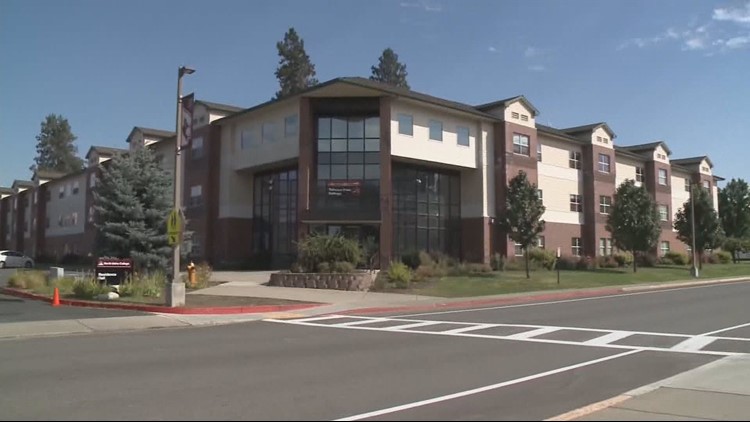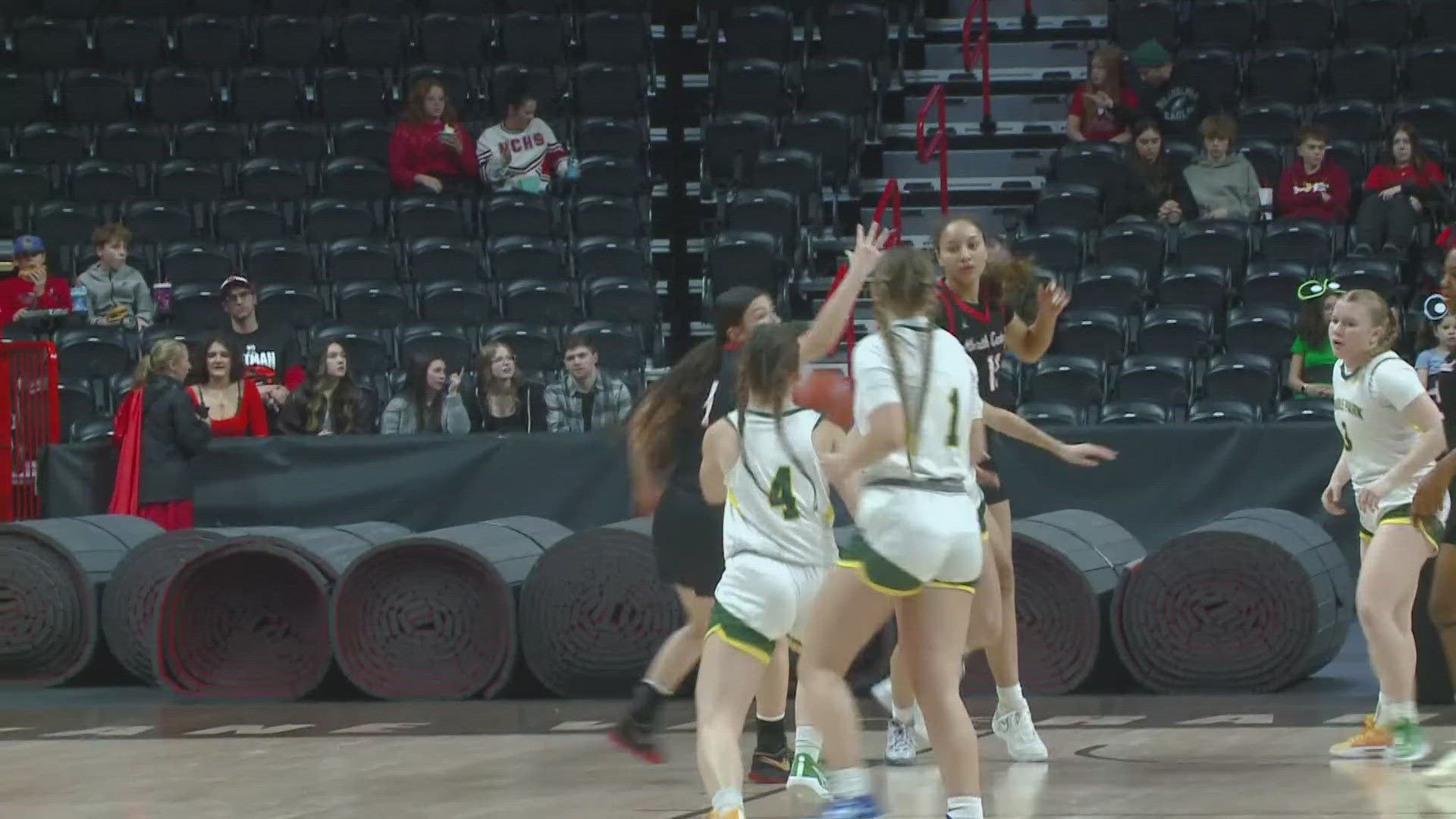COEUR D'ALENE, Idaho — The State Board of Education is urging North Idaho College trustees to "set aside parochial or partisan interests" before accreditation concerns cause "irreparable" harm to the college, students and the community, as reported by KREM 2 news partner the Coeur d'Alene Press.
The SBOE holds constitutional and statutory authority over all state educational institutions and public school systems. In the Friday letter signed by SBOE President Kurt Liebich and Executive Director Matt Freeman, officials outlined the "numerous and severe" consequences of losing accreditation.
NIC accreditation is already under review by the Northwest Commission on Colleges and Universities.
Idaho Code 33-107 says Idaho postsecondary institutions can accept course credits only from accredited organizations like the NWCCU. The letter states that without accreditation, associate's degrees, general education and dual enrollment credits from NIC would "no longer be transferable to other Idaho institutions."
"To put a finer point on it, a degree from an unaccredited institution is a liability, not an asset," the SBOE letter states. "Perhaps only an unscrupulous and predatory diploma mill would recognize credits from an unaccredited institution."
If the NWCCU were to suspend accreditation and NIC operations, NIC would also be under complete "control of the State Board," per I.C. 33-2143.
A team of four NWCCU evaluators will visit the NIC campus Jan. 18 to review the college's eligibility for accreditation, including financial stability and the impact of recent trustee decisions on student outcomes. The site visit notice came after NWCCU received a second complaint Nov. 1 about the board of trustees' actions.
The Press reported on the NWCCU's upcoming visit on Dec. 3.
SBOE officials said they're deeply concerned about the current trajectory of NIC, particularly the complaints submitted to the NWCCU and the departure of top-level leadership.
"Action or inaction by the College's board of trustees that places accreditation at risk would result in long-term injury to the very students you were elected to serve," says the SBOE letter, which was sent to NIC trustees and area legislators. "It would also significantly impair the College's ability to recruit and retain students, faculty and staff. Indeed, the very viability of the College itself could hang in the balance."
NIC President Rick MacLennan was fired without cause in September, and six other leaders have either left or announced their departures.
In an email to the college Monday, NIC Interim President Michael Sebaaly said he intends to talk soon with Freeman. He also plans to meet with the executive accreditation team this week.
"It's imperative that we listen to one another and work in partnership, putting our students first in all decision-making," Sebaaly said in an email. "It's important for our board and our community to recognize the role the SBOE has in helping us execute the delivery of higher education in our region."
Coeur d'Alene Rep. Jim Addis, the father of an NIC graduate, was both "hopeful" and "confident" that the college will not lose accreditation despite the strongly worded letter.
"I don't think the board, the interim president or anyone wants NIC to lose their accreditation," Addis told The Press on Monday. "I would imagine everyone will work hard to do what needs to be done, and I'm confident that they'll have some success."
The State Board plans to discuss NIC accreditation issues at its Dec. 15 meeting in Boise.
NIC Trustee Christie Wood said that in her 25 years as both a former school board and NIC trustee, she's never seen a letter like this from the SBOE.
"This is definitely a warning to our board to follow all standards," Wood said. "I deeply respect the SBOE's role in ensuring NIC meets the education standards set by the state, and I will encourage the board to completely cooperate with them."
Trustee Ken Howard said he sees the action from the SBOE as a positive move.
"I'm glad that the State Board of Education has taken an interest in trying to help us resolve our difficulties," Howard said.
Idaho requires higher education institutions to notify NIC students if their credits won't be accepted. Students may also request reconsideration. Still, loss of accreditation could cause many students to repeat courses at upper-level institutions for a greater cost.
"If accreditation is lost, the value of a degree from NIC will be significantly reduced, or even negated entirely, for all students," the SBOE letter states.
Other consequences of losing accreditation listed by the SBOE include:
• NIC students would be ineligible for Idaho's Opportunity Scholarship
• Students would not have the course credentials wanted by employers, which could "negatively impact the ability of many northern Idaho businesses and industries … to meet their workforce needs"
The State Board's letter emphasizes the "importance and implications of the potential loss of regional accreditation," Coeur d'Alene Rep. Paul Amador said.
"In many ways (NIC) is the lifeblood of our community," Amador said. "Maintaining regional accreditation is critical to the future of our community college and the current and future students at NIC."
State Board officials are advising college trustees to complete the 10-step Accreditation Response Action Plan presented by Vice President for Instruction Lita Burns ahead of the NWCCU's Aug. 1 deadline.
The Press reported on this plan in detail on Oct. 29.
"(NIC) is important, not only to the students that are pursuing higher education but also to the business community," Coeur d'Alene Sen. Mary Souza said Monday. "Adult learning is incredibly important for many who have other jobs and want to increase their capacity for advancement by taking classes at NIC."
She encouraged the community that "these things will be worked out" and said she isn't concerned about NIC "going away or being discredited."
"I think we all need to take a deep breath," Souza said. "Let's try to stay positive and remember we have this wonderful community college. Let's support all that are involved and hope the process does well."
But Coeur d'Alene Mayor Steve Widmyer, an NIC graduate, sounded a note of urgency. He believes his sentiments are shared by "thousands of people," making recent events that much more distressing.
"As of Jan. 1, there will be no vice president or president at the school that was there just a couple of months ago," Widmyer said Monday. "We had a fantastic college down there, and now there are some real challenges to what its future will be — if it's still going to be a great school or go in the tank."
Of top concern to Widmyer are NIC's inability to serve students and how the "drop off" in enrollment will impact the local workforce. In his words, "No students means no jobs means a bad economic situation for Coeur d'Alene."
The root of NIC's problems, Widmyer said, is that the "elected people don't have the best interests of the institutions in mind." He was referring to the three trustees who fired MacLennan, among other decisions: Board Chair Todd Banducci, Greg McKenzie and Michael Barnes.
None of those three responded to a Press request for comment on the State Board's letter.
"Elections have consequences," Widmyer said. "I think the State Board of Education needs to take a very active role in correcting this issue and do whatever they can to fix this."
The Coeur d'Alene Press is a KREM 2 news partner. For more from our news partner, click here.



